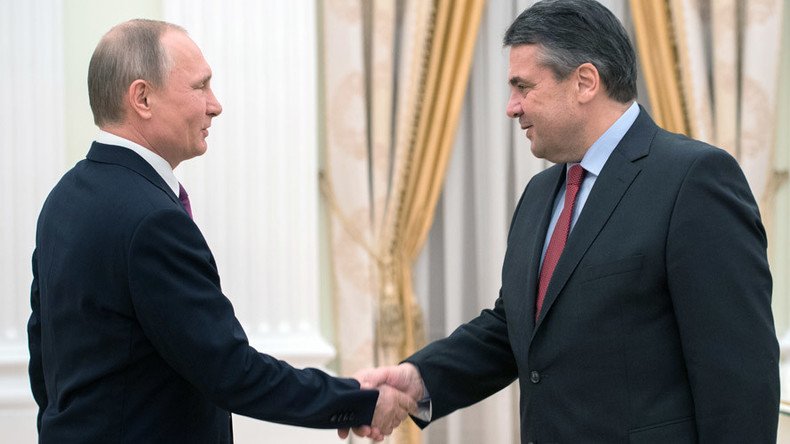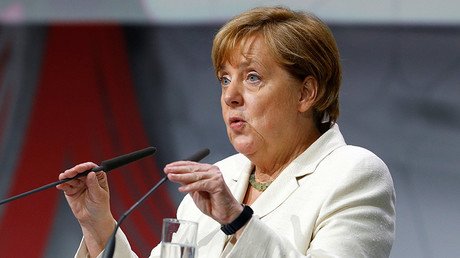‘Forcing us to give up Russian gas to sell own is unacceptable’ – German FM blasts US sanctions bill

A US bill threatening to sanction European companies taking part in construction of a Russian pipeline is seen as unacceptable in Berlin, Foreign Minister Sigmar Gabriel said, especially if it actually aims to push America’s own gas exports.
“We deem it absolutely unacceptable when a bill demands that Europeans give up on Russian gas so that they could sell American instead, at a much higher price,” Gabriel said in Krasnodar, Russia, on Thursday as cited by Handelsblatt daily.
Gabriel was referring to new sanctions passed by the US Senate in mid-June. Initially outlined as an amendment to a bill imposing sanctions against Iran, the Russian part of the document threatens penalties for companies doing business with Russian oil and gas firms, possibly affecting the participation of BASF, Shell, Engie, OMV, Wintershall and Uniper in the Nord Stream 2 project.
It also states clearly that US exports are on the agenda.
"The United States government should prioritize the export of United States energy resources in order to create American jobs, help United States allies and partners, and strengthen United States foreign policy," the bill says, as cited by Bloomberg.
The amendment was approved by the US Senate in mid-June by a majority of 98 to two, but still requires approval by the House of Representatives and the signature of the US president.
The move caused a wave of indignation in the EU and particularly in Germany, which is a prime beneficiary of Nord Stream 2. German Chancellor Angela Merkel also called the bill a “peculiar move” while Gabriel released a statement saying that “Europe's energy supply is a matter for Europe, and not the United States of America!”
“Sanctions as a political instrument should not be linked to economic interests,” the statement read, adding “the actual goal” of the bill is “to provide jobs for the US gas and oil industry.”
Foreign Minister Gabriel, who has been visiting Russia for the third time since his appointment in February, also said on Thursday that Berlin was determined “to open a new, positive chapter in the history of our relations,” as quoted by RIA Novosti.
“We have differences in terms of political values, but we don’t have to abandon cooperation between our societies as it is important to establish better relations on a societal level,” he added.

President Vladimir Putin, who received the German diplomat later on Thursday, said Russia also wanted to do its part to strengthen ties between Moscow and Berlin. “Our relations are developing despite certain difficulties,” Putin said in Moscow, praising “positive trends” in the dialogue.














